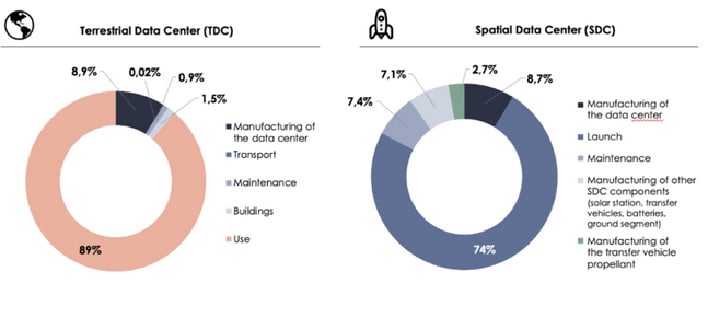Study Says Data Center Farms In Space Is A Great Idea To Combat Climate Change
As technology continues to advance, the need for data centers has been increasing. Those data centers take a lot of energy, as well as put off a great deal of heat. The issue that arises is all that heat and energy use adds to the problem of climate change. So, in an attempt to find new and innovative ways of being able to keep up with data center needs, but not placing more stress on already maxed out power grids and adding to the climate change dilemma, a consortium of 11 partners from five European countries came up with ASCEND.
ASCEND stands for the Advanced Space Cloud for European Net zero Emission and Data sovereignty for the European Commission as part of the Horizon Europe programs. The study focuses on ways to achieve zero CO2 emissions on Earth and a virtuous life cycle. Its main purpose is to evaluate the influence of data centers on the European global energy use and to identify a way forward to decrease associated greenhouse gases footprint by locating future data centers in low-Earth orbit.
The ASCEND feasibility study comprises the following topics:
- Digital sector and data centers context, and energy consumption and environmental footprint assessment.
- Conceive an “environmentally driven” space data system architecture.
- Define in-orbit services concepts for the operational deployment and maintenance of the space data centers infrastructure to help the implementation development program and associated technology roadmap for an operational system in 2035.
- Establish the space data centers’ cost and business case, contributing to a sustainable space infrastructure and in-space ecosystem.
- Define the implementation development program and associated technology roadmap for an operational system in 2030.
- Developing the benefits of an independent cloud solution for the European sovereignty.
While placing data centers in space may sound like a good plan on paper, those involved are aware of potential downsides. The ASCEND website states, “…it is the entire environmental and social footprint (water, air and biodiversity pollution, human cost generated by mining activity) of the space and digital sectors that we must question (and reduce!) through such a project.”



